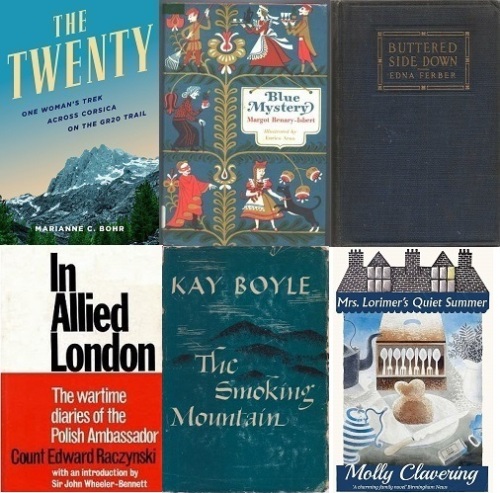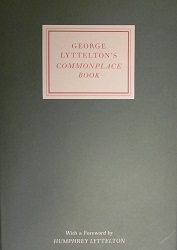 I think we can all agree that it’s fairly futile to “review” someone else’s commonplace book. At best, you can say the compiler has flawless taste that exactly matches your own and that you copied down every passage for your future entertainment. I’ve yet to have that happen but I do always find some gems and there were a more-than-usual number of them in George Lyttelton’s Commonplace Book edited by James Ramsden.
I think we can all agree that it’s fairly futile to “review” someone else’s commonplace book. At best, you can say the compiler has flawless taste that exactly matches your own and that you copied down every passage for your future entertainment. I’ve yet to have that happen but I do always find some gems and there were a more-than-usual number of them in George Lyttelton’s Commonplace Book edited by James Ramsden.
Lyttelton, the Eton schoolmaster whose correspondence with former pupil Rupert Hart-Davis has been entertaining readers since the 1970s (see my reviews of Volume One, Volume Two, and, after a lamentable lapse as a reviewer, Volume Five), was born in 1888 into a family line rich with aristocratic politicians and had been dead for 40 years by the time this was published in 2002. He spent his entire career at Eton, sharing his love of literature with generations of boys, and the depth of that love and knowledge is on display here. Lyttelton is not limited by eras or tongues, happily reaching out across centuries and the Western world (with some suspect Chinese sayings thrown in) for his tidbits. French quotes remain in French, on the assumption that readers need no translation. Oh for the optimism of 2002. I suspect today publishers would add translations for more accessibility.
The book ends with an affectionate essay about one of Lyttelton’s friends and early letters between him and Hart-Davis that predate the published correspondence. But they are beside the point for anyone but completists; the rest of us want to see what delightful quotes Lyttelton pulled from his varied readings. And he does not disappoint. Here are my favourites:
Aphorisms
He that leaves nothing to chance will do few things ill, but he will do very few things.
– Halifax (the Trimmer)
The Arts
The civilised are those who get more out of life than the uncivilised, and for this the uncivilised have not forgiven them.
– Palinurus [Cyril Connolly]
Eccentrics – possibly the greatest of all the sections
The Rev. G. Harvest of Thames Ditton, a keen fisherman, missed his own wedding to go gudgeon-fishing. The lady broke off the match. He often forgot it was Sunday, and went into church with his gun to find out why so many people were there.
– G. H. WilsonMcTaggart, the celebrated philosopher, always wore a string round one of his waistcoat buttons. Gilbert Murray asked him why and he answered ‘I keep it handy in case I should meet a kitten.’
History
The real vice of the Victorians was that they regarded history as a story that ended well – because it ended with the Victorians.
– G. K. Chesterton
Letterwriting
Have the love and fear of God ever before thine eyes, God confirm your faith in Christ. Je vous recommande à Dieu. If you meet with any pretty insects of any kind, keep them in a box.
– Sir Thomas Browne to his son, 1661
Nations
When sanctions were imposed on Italy, an Italian journalist called on his countrymen to desist ‘from such pernicious British habits as tea-drinking, snobbery, golf-playing, Puritanism, clean-shaving, pipe-smoking, bridge-playing, and inexplicable apathy towards women.’
Reading
Every book worth reading ought to be read three times through; once to see what it is all about, once to observe how it is done, and once to argue with the author.
– G. M. Young
 Library Loot is a weekly event co-hosted by Claire from
Library Loot is a weekly event co-hosted by Claire from 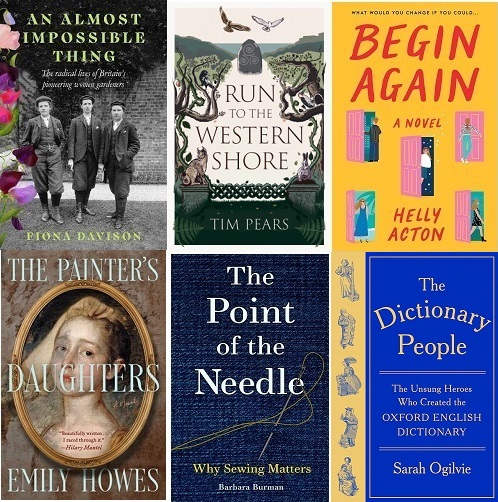
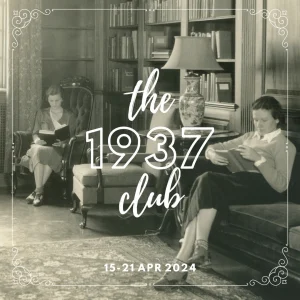 Only one brief entry for me in this week’s
Only one brief entry for me in this week’s 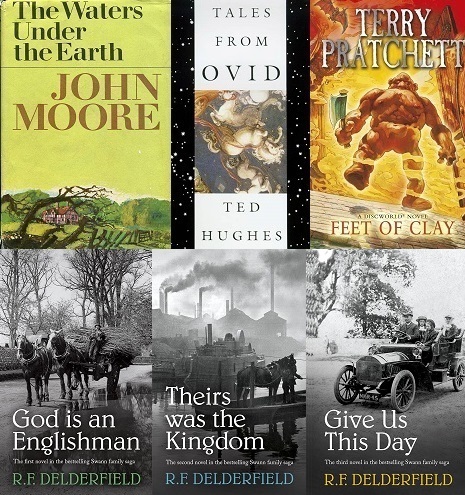

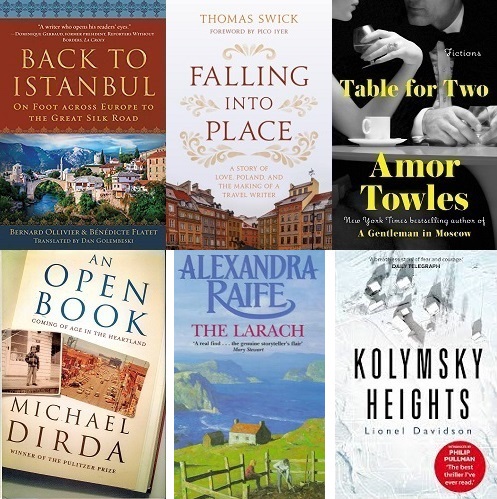
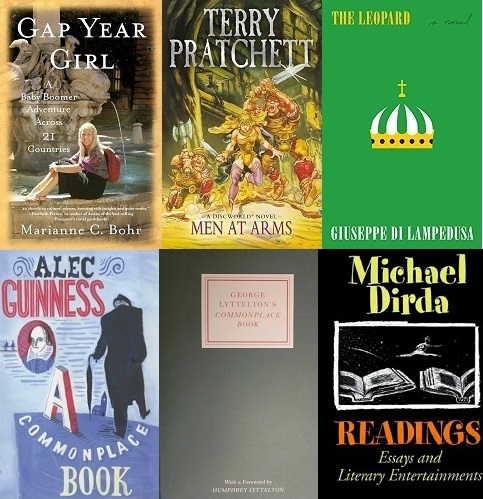
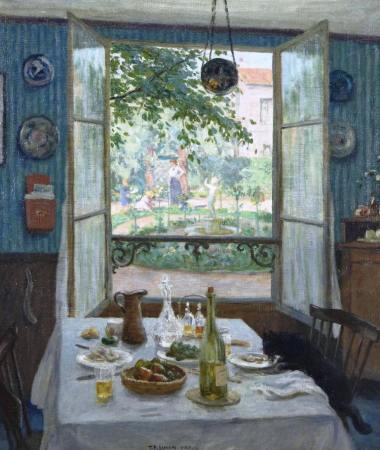
 Sun on Snow by Alexandra Raife was my perfect accompaniment for the gentle setting. I discovered Raife’s gentle books thanks to this “
Sun on Snow by Alexandra Raife was my perfect accompaniment for the gentle setting. I discovered Raife’s gentle books thanks to this “